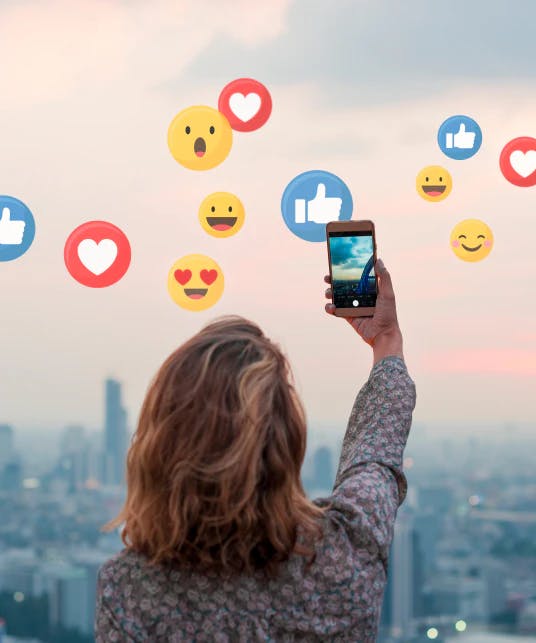Social Media Activism Makes You Feel Good, But Is It Actually Helping Anyone?
Even before the current social unrest now confronting our communities, social media was used as a nexus between friends, acquaintances, coworkers, or merely people of the same mindset working together for a common purpose.

Never before have we been as privileged as we are now, to have entire movements at our fingertips, to mobilize and organize within minutes at a few touches of a button. Never before have we seen so many people brought together through this medium.
But as we’re quickly learning, our very human capabilities only go so far before other forces at work eventually seep in, namely self-aggrandizement and, perhaps worst of all, insincerity. As we live more and more of our lives online, we should be quick to recognize that however helpful, social media is not a true benchmark of ourselves and the people around us, nor does it effectively capture our true essence as human beings with strong convictions.
The Role of Social Media in the Civil Rights Movement
There’s no denying that we’re living in unprecedented times. Though there have been many comparisons between the activities of today and those of the past, mainly the Civil Rights Movement of the ’60s, there’s one main difference — the figures of that time didn’t have Twitter, Instagram, or Facebook to post on in an effort to raise awareness (and were extremely successful and influential without it, for that matter).
A quick scroll through timelines and stories offers dates and places to protest, resources on education and learning more about racism, and personal messages from leading figures in our local communities, not to mention fundraisers for affected organizations and individuals.
While social media provides resources, it’s hard not to feel pressured to be on par with our most active friends.
While this is helpful a majority of the time, it’s also difficult not to feel inundated with newfound knowledge or even know where to start if we’re looking to give back. Furthermore, it’s hard not to feel pressured to be on par with the most active members of our feeds and to match them post for post in addressing our followers.
Social Media Activism Makes People Feel Powerful
For a select few, this is the opportunity they’ve been waiting for. We’ve now seen countless criticisms of influencers who see protests more as a substitute musical festival than an expression of social outcry.
But what has the potential to be even more malicious is those behaviors that aren’t getting called out. Maybe it’s a family member, an old friend from high school, or co-worker, who repeatedly and emphatically shames those who aren’t as on board with things (at least publically) as others are.
Performative activism damages a movement that works for equality.
What’s even more damaging to a movement that works for equality is the performative activism we’re seeing, not from influencers or media figures, but perhaps from our own acquaintances. While their activism may come from a good place, it can often feel self-important and insincere. These are the activists who judge others by their own standards, and in turn, denigrate those who don’t make the grade.
Just Because It’s Not on Social Media Doesn’t Mean It’s Not Happening
What may be even more important now is not what we’re seeing, but what we’re not seeing.
Not everyone will post their protest signs or rants to their feeds. Not everyone will donate to different organizations, and then post the screenshot of that donation for public recognition. And we shouldn’t demand they do so, just to prove to us we’re all on the same side. Since silence is not violence, perhaps it’s only natural to question the sincerity and motives of the loudest voices in the room.
We shouldn’t use social media as a litmus test for how much we care about something.
Pericles was an ancient Greek orator who said that what we leave behind isn’t engraved on stone monuments, but what is woven into the lives of others. What we leave behind from this very real, transformative time in our lives will not be black squares or obsequious videos from celebrities, but how we view and treat others who look different than us when we come across each other in real life, and not just online.
Closing Thoughts
We can only ever assume that people are as genuine as they portray themselves online. Without speaking face-to-face or having discussions off social media, it’s hard to grasp someone’s authentic feelings towards a trend or movement.
But the danger present is just as real. We cannot, and should not, use social media or the personalities we’ve created for ourselves there as a litmus test for how much we care about something, nor should we judge others by how authentic or inauthentic they appear to be.
The truth is, only we ourselves could ever know how we truly feel towards strong issues prevalent in our society, like injustice and inequality. And if we expect others to post, retweet, like, or rant as much as we do, or even measure their level of social consciousness by quantity instead of quality, we’re in for a rude awakening when they inevitably fail to meet that criteria.